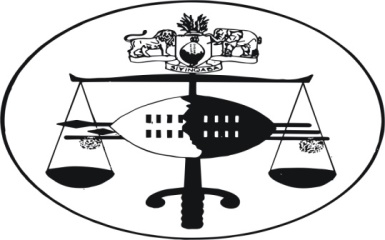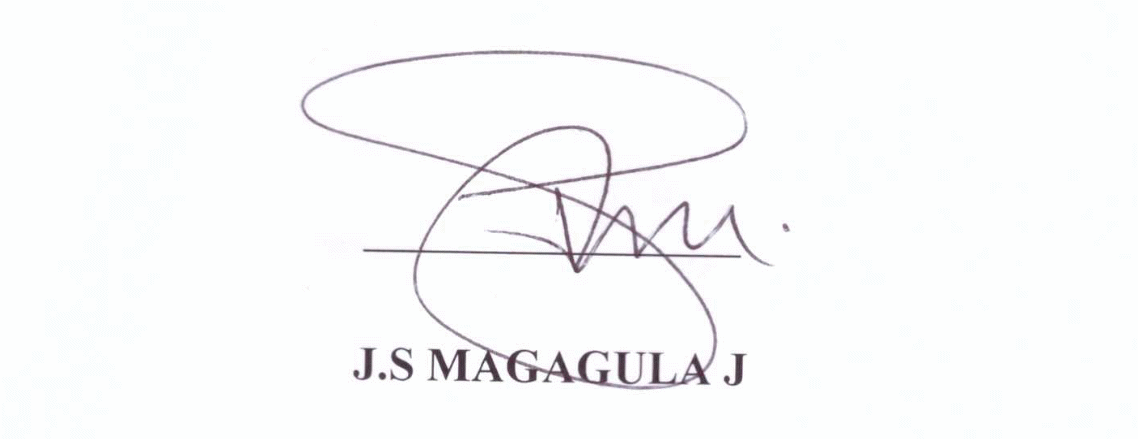
IN THE HIGH COURT OF ESWATINI
JUDGMENT
HELD AT MBABANE Case No. 1402/18
In the matter between:
NHLANGANO CASINO ROYALE Applicant
AND
CONCILIATION MEDIATION AND
ARBITRATION COMMISSION 1st Respondent
THANDIWE DLAMINI&16 OTHERS Further Respondents
Neutral citation: Nhlangano Casino Royale v. Conciliation Mediation and Arbitration Commission & Others (1402/2018) [2019] SZHC 220 ( 21st November, 2019)
Coram: Magagula J
Date Heard : 16th October 2019
Date Delivered: 21st November 2019
[1] This matter arises from an arbitration award and the applicant seeks substantive relief as follows:
“ 5. That the arbitration award of the 2nd respondent handed down on the 2nd August 2018 be and is hereby reviewed and corrected or set aside.
6. Costs of this application to be paid by the party or parties opposing the application.”
[2] In a nutshell the applicant contends that in the conduct of the arbitration, the 2nd respondent committed a gross irregularity in that he failed to apply his mind to the facts before him.
[3] To substantiate this allegation the applicant seeks to demonstrate in paragraphs 18 to 18.7 of its founding affidavit that during the arbitration proceedings it paraded evidence to show that the applicant was in financial difficulties and this evidence was not challenged by the further respondents. Applicant therefore maintains that had 2nd respondent took into account the evidence on its financial position as given at arbitration he would have found that applicant was indeed in financial difficulties and that its retrenchment of the further respondents was therefore substantively fair.
[4] I Must state that I am unable to agree with the contention that the arbitrator (2nd respondent) failed to take into account any evidence given during arbitration. In his award the arbitrator captures all the evidence given during arbitration. From paragraphs 5, to 5.28 of his award he analyes the evidence relating to financial difficulties experienced by the applicant and comes to the conclusion that the applicant which was then the respondent has failed to produce evidence required by law to establish that an employer’s reason for retrenching is an economic one.
[5] At paragraph 5.27 of the award and referring to a notice given by the Applicant to the Labour Commissioner on the 25th January 2011 the 2nd respondent states:
“ On the face of the notice, the Respondent failed to comply with section 40 (2) (e) of the Employment Act. In its own words the Respondent did not furnish the Commissioner of Labour and SHCAWU with the latest financial statements and audited accounts. As a matter of law, the provisions of section 40 of the Employment Act are peremtory.”
[6] Clearly therefore the 2nd respondent took into account the evidence on the financial position of the applicant and came to the conclusion that it was lacking in material respect. He therefore came to the conclusion that the applicant had failed to establish that the reason for the retrenchments was an economic one as contended by the applicant. In my view this conclusion was manifestly justified.
[7] From paragraph 18.8 to 18.11 of the foundling affidavit the applicant endeavors to demonstrate that the further respondents were consulted through their union before the retrenchments were effected. Applicant seeks to demonstrate that the evidence disputing that the consultation occurred is contradictory and cannot be relied upon.
[8] Again I am unable to agree with this contention. The 2nd respondent deals with the evidence relating to meetings between the applicant and the union from paragraph 5.35 to paragraph 5.38 of his award. He concludes that there is insufficient evidence to prove that the said consultations ever took place. His reason for this finding is that there are no minutes proving that such consultations ever took place.
[9] In paragraphs 5.36 and 5.37 the 2nd respondent states:
“ 5.36 The Respondent kept and used minutes of the staff meetings of the 27th and 29th January 2011 during the arbitration, this proves that the company was conscientions about keeping records of consultations for future reference. It is therefore unlikely that in consultatious with the union the Respondent would have adopted a lackadaisal approach.
5.37 Moreover, the alleged union consultations and staff meetings were two months apart. It is unlikely that the minutes of the consultations were misplaced due to lapse of time. Having failed to produce the minutes the Respondent should have called other witnesses to corroborate Rw2’s version.”
The 2nd respondent then came to the conclusion that there were no consultations on the anticipated retrenchments between the union and the applicant. I agree with this conclusion.
[10] On the purported direct consultations between the applicant and its employees who included the further respondents, the
Arbitrator noted that these meetings were held at a time when the decision to retrench had already been taken and they did not therefore constitute consultations. Again I agree with this conclusion which is clearly backed by authorities referred to by the arbitrator and which I see no need to repeat herein.
[11] For the foregoing reasons I have come to the conclusion that the 2nd respondent duly and diligently applied his mind to the facts established by evidence during arbitration. He did not misdirect himself in any manner. In the premises the following order is made:
11.1 The application is dismissed with costs.

For the Applicant : B. Gamedze
For the Further Respondents : B. Xaba
6